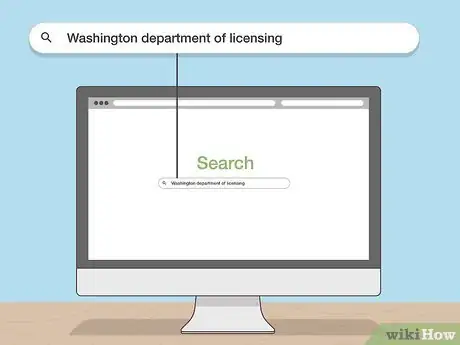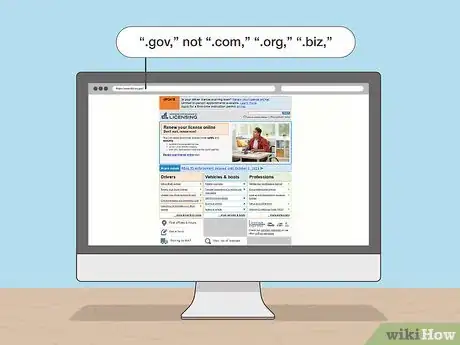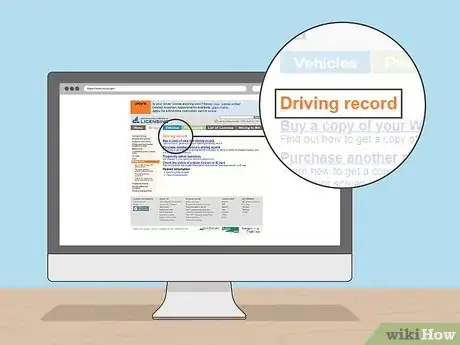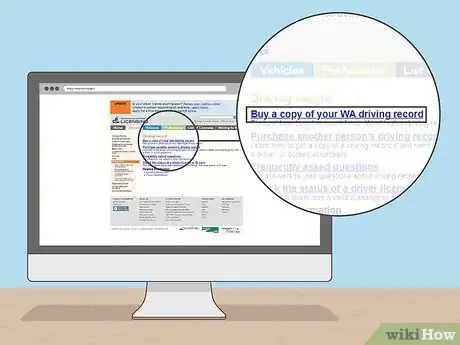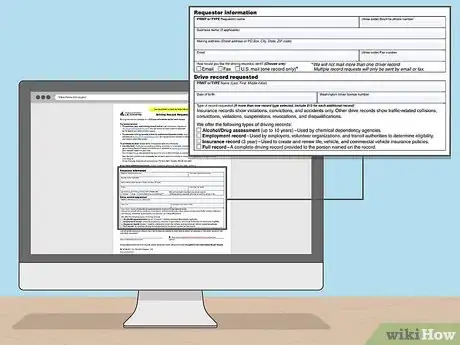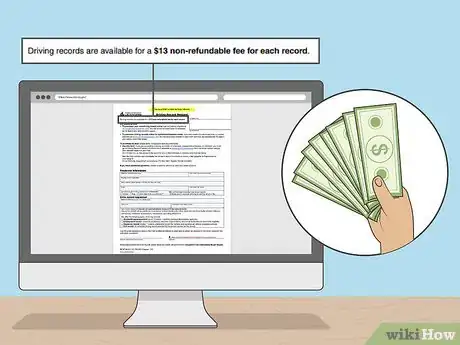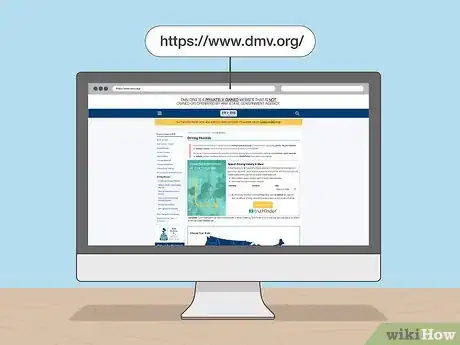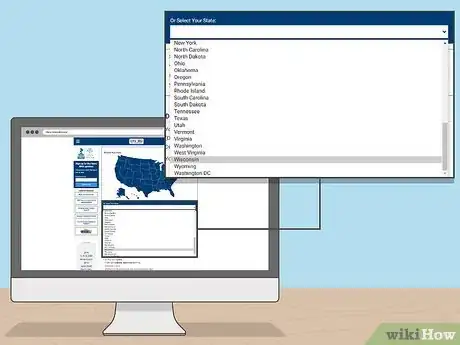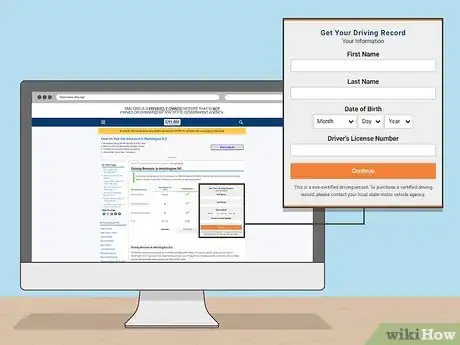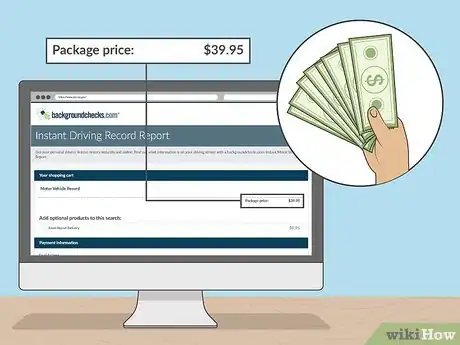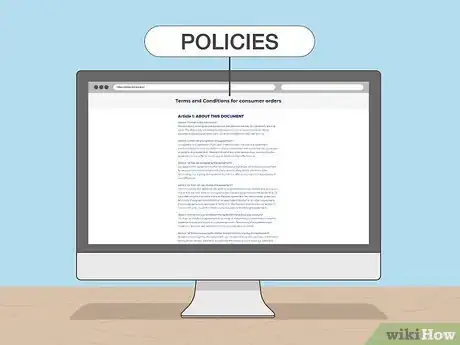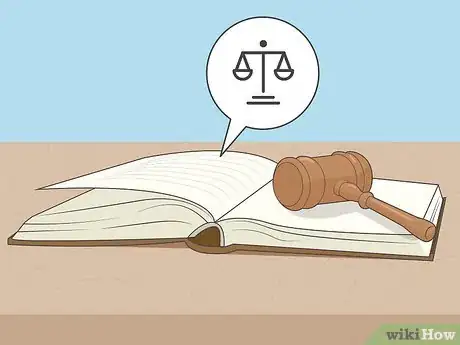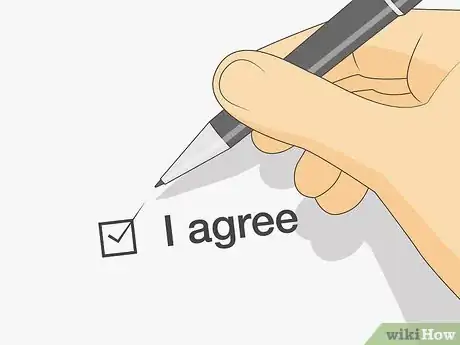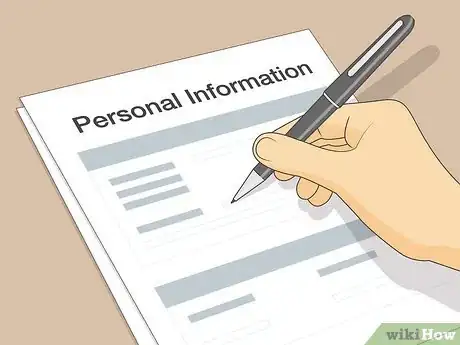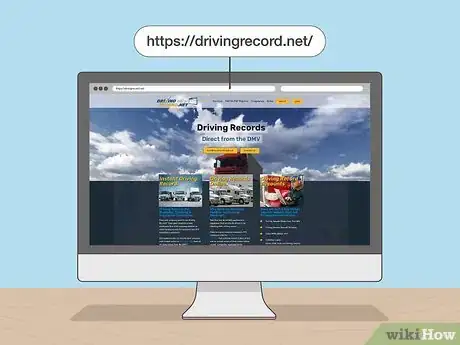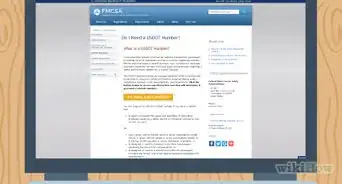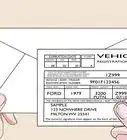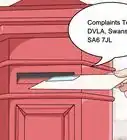This article was co-authored by Clinton M. Sandvick, JD, PhD. Clinton M. Sandvick worked as a civil litigator in California for over 7 years. He received his JD from the University of Wisconsin-Madison in 1998 and his PhD in American History from the University of Oregon in 2013.
There are 7 references cited in this article, which can be found at the bottom of the page.
This article has been viewed 501,255 times.
Being able to access your driving record online can be valuable for several reasons. If you have infractions on your record, you can avoid jail by finding out if you have a suspended license. Being aware of infractions on your record can also help you determine which insurance policies will be available to you and which one might be the best fit. Finally, the ability to check your driving history online will allow you to verify that there are no errors on your record, which could result in higher insurance rates, tickets, or a suspended license.
Steps
Checking Your Record on a State Website
-
1Find your state's department of licensing web page. With the help of any search engine, this page should be easy to find. Just search the name of your state (e.g. "Washington") and "department of licensing."
- Different states have different names for the institution that handles driver and vehicle licenses. For example, in the state of Washington, it is called the Department of Licensing.[1] In Ohio, this institution is called the Bureau of Motor Vehicles.[2] In Pennsylvania, licensing is handled by the Department of Transportation.[3]
- Consequently, you may need to try a couple of different searches to find the page you are looking for.
-
2Check that you have the right site. When you think you've found the right page, make sure it actually belongs to the appropriate state agency. In most cases, it should end in “.gov,” not “.com,” “.org,” “.biz,” or any other designation.
- A “.gov” website is an official government webpage, so if the page doesn't end in .gov, there is a good chance this page is not actually connect with your state's department of licensing. For a few states, the page will end in .state.xx.us, with the "xx" standing in for an abbreviation of the state.
Advertisement -
3Confirm that the website offers driving records. Each state's department of licensing offers slightly different services. Today, most provide driving records through their website, but others might require you to visit their offices, call them on the phone, or request this information by mail.
- Florida, for example, does not have an online driving record service. Instead, you must purchase a copy of your record online from a private vendor.[4] Conversely, Alabama requires that you go to a DMV office to get records.
- Additionally, you typically cannot receive a “certified” copy of your driving record online but instead must go into the DMV office.
-
4Find the link. Once on the homepage, you will still need to hunt around a bit to find a link to access your driving records. Every state's page is different, so where this information might be located will vary.
- For example, the Ohio webpage includes a link on the homepage under "general information" called "Copy of Driving Record (Abstract)" that will take you to a page with information about how to access your records.
- In Washington, this information is found under the "Drivers" tab but is not immediately apparent from the homepage.
- Many states' websites have a search function. It is typically located near the top of the page and often in the top right corner. Enter "driving record" or "driver's history" in this search box and press enter.
-
5Enter identifying information. Once you've accessed the part of the website where your state offers driver's history services, you'll need to provide some information about yourself.
- Most commonly, you will be asked for your name, driver's license number, and some or all of the digits of your social security number.
- Some states will require you to create an account in their system with a username and password. If you think you will need to revisit the page again, pick a username and password that you will remember, or write them down.
-
6Pay the fee. Most states require you to a pay a fee to access records through their system. For example, in Washington, the fee is $13. Typically this fee is non-refundable. In some states, the amount of the fee varies depending on what format you want your records in.
- For example, in Ohio, you can view an "unofficial" record on a website for no charge, have the information mailed to you for a small fee, or request an official, certified copy at a slightly higher cost.
Checking Your Record Using DMV.org
-
1Visit the website. DMV.org is a popular website that allows you to access driving records from most states. Go to the driving record page of DMV.org, here.
- This website is not affiliated with any state's department of licensing, but is instead an independent, privately-owned company.
- The site’s primary advantage is convenience. You can access the information quickly and easily in a clear, understandable format. The drawback is that it typically costs a little more than getting your records directly from the state.
- The driving record from DMV.org is not an official record, so if you need a certified record, you must go through your state DMV (usually by going directly to a DMV office).
-
2Choose your state. Drag your mouse over your state on the map and click on it to select the state in which you live. You can also make your selection via a drop-down menu in the top right corner and a list of states you can click on at the bottom of the page.
- Not every state's driving records are available through this website.
- In particular, the northeastern part of the United States is largely excluded. In such cases, DMV.org provides links to those states' official services.
-
3Enter your personal information. On the next page, enter your name, address, and driver's license number. If you have not lived at your current address for at least two years, click the appropriate box, and enter your previous address.
- If you are ever confused or need assistance, then you can click on “Contact DMV.org” toward the bottom of the page. This link will take you to a page where you can ask a question.
-
4Review the fees. Make sure the information looks correct and decide whether you want a copy of the report emailed to you.
- There is an additional fee for this service, which provides your driving history in a format that you can retain with your electronic records.
-
5Review the policies. After advancing to the next screen, you will need to review and agree to the privacy policies before your records can be provided. Provide your email address as needed, and advance to the payment screen to finalize your purchase.
Checking Employees' Driving Records
-
1Learn the law. The Driver's Privacy Protection Act of 1994 outlines the rights of both employers and employees with respect to accessing driving records. Among other aspects, this law forbids any state's Department of Licensing from providing personal identifying information about any driver without their consent.[5]
- State statutes may govern these practices where you operate your business. It's a good idea to find out before requesting any records. This information should be available from the website of your state's government.
-
2Get consent. Getting consent will shield you from potential legal liability if an employee ever tries to sue you for violating their privacy.[6] Documentation may be required to actually obtain the records, and written consent is a stronger legal safeguard than oral consent.
- An easy way to do this is to simply specify on the application that allowing you to check potential employees' driving records is a condition of employment.
- You can also use a driving record release form. The form should include information like the following: “I understand that driving a company vehicle (or my own vehicle) is required for this position. Furthermore, I acknowledge that having and maintaining a satisfactory driving record is a condition of employment and will remain one. Therefore, I agree to allow [insert company name] to check my driving record, both before making a hiring decision and periodically thereafter. I understand the company will use this information for employment purposes and will not furnish the information to third parties without my prior written consent. Furthermore, I agree to release [insert company name] and its employees and agents from any liability for damage which may result from furnishing the requested information.” Then include a signature block for the employee to print name and date of birth, driver’s license number, and signature and date.
-
3Collect employees' personal information. Just as is the case for viewing your own driving records, you'll need to know your employees' full name, driver’s license number, and possibly a variety of other information including their social security numbers, addresses, dates of birth, etc.
- Again, using the job application to collect this information is an efficient way to make sure you have all the information you need.
-
4Request employees' records. You can request employees' driving records through your state, as described in Method 1, above. However, this may be a slow process, especially if you need a large number of records. If time is an issue, you may wish to use a private company to obtain the records you need.[7]
- DMV.org suggests using drivingrecords.com to check employees' records, but there are many other services available, too.
- For example, http://www.drivingrecord.net/ specializes in driving record services for businesses. If you are running a business that conducts 7 or fewer driving record checks per month, this site will allow you same-day access to the information you need for employment screening purposes.
- Yet another site that allows you to check both your own records and those of your employees is http://www.4safedrivers.com/. This site also provides information about additional documents required by some states to access the records of others. That information is available here.
References
- ↑ http://www.dol.wa.gov/
- ↑ http://bmv.ohio.gov/
- ↑ http://www.dmv.state.pa.us/
- ↑ http://www.dmvflorida.org/driving-records.shtml
- ↑ https://www.businessfleet.com/145868/striking-the-balance-mvr-checks-and-privacy-laws
- ↑ http://smallbusiness.findlaw.com/employment-law-and-human-resources/performing-an-employee-background-check.html
- ↑ http://www.dmv.org/ct-connecticut/driving-records.php
Warnings
- Most states require you to pay at least a small fee for your driving records. Be wary of any website not affiliated with your state (e.g. one that does not have a .gov designation) that offers this service for free. These sites often have hidden fees. Even worse, they may be trying to collect your personal information for the purposes of identity theft.⧼thumbs_response⧽
- In many states, it is illegal to access another person's driving records without their consent, except for specific purposes. Make sure you know what the law is about this in your state before accessing another person's records.⧼thumbs_response⧽
About This Article
To check your driving record online, first find your state’s department of licensing website by searching the name of your state followed by “department of licensing.” Once you’re on the homepage, click on the “Driver’s Information” tab or enter “driving record” into the site’s search function. Then, enter your personal information, like your name, driver’s license number, and the last 4 digits of your social security number to find your record. Before accessing your driving record, you’ll need to submit a small fee online. To learn how to find your driving record through a private company, read on!
